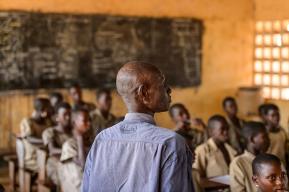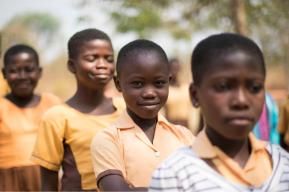
Futures of Education
The Futures of Education
Our world is at a unique juncture in history, characterised by increasingly uncertain and complex trajectories shifting at an unprecedented speed. These sociological, ecological and technological trends are changing education systems, which need to adapt. Yet education has the most transformational potential to shape just and sustainable futures. UNESCO generates ideas, initiates public debate, and inspires research and action to renew education. This work aims to build a new social contract for education, grounded on principles of human rights, social justice, human dignity and cultural diversity. It unequivocally affirms education as a public endeavour and a common good.

No trend is destiny...Multiple alternative futures are possible... A new social contract for education needs to allow us to think differently about learning and the relationships between students, teachers, knowledge, and the world.
Our work is grounded in the principles of the 2021 report “Reimagining Our Futures Together: A New Social Contract for Education” and in the report’s call for action to consolidate global solidarity and international cooperation in education, as well as strengthen the global research agenda to reinforce our capacities to anticipate future change.
The report invites us to rebalance our relationship with:
- each other,
- the planet, and
- technology.

Summary of the Report
The International Commission
In 2019 UNESCO Director–General convened an independent International Commission to work under the leadership of the President of the Federal Democratic Republic of Ethiopia, H.E. President Sahle-Work Zewde, and develop a global report on the Futures of Education. The commission was charged with carefully considering inputs received through the different consultation processes and ensuring that this collective intelligence was reflected in the global report and other knowledge products connected with the initiative.

Our thematic research priorities
Featured highlights
Sustainable development challenges and the role of education
Our foresight work, looking towards 2050, envisions possible futures in which education shapes a better world. Our starting point is observation of the multiple, interlocking challenges the world currently faces and how to renew learning and knowledge to steer policies and practices along more sustainable pathways.The challenges are great. But there are reasons for optimism, no trend is destiny.
Our work responds to the call of the International Commission on the Futures of Education to guide a new research agenda for the futures of education. This research agenda is wide-ranging and multifaceted as a future-oriented, planet-wide learning process on our futures together. It draws from diverse forms of knowledge and perspectives, and from a conceptual framework that sees insights from diverse sources as complementary rather than exclusionary and adversarial.

Linking current trends and the report of the International Commission on the Futures of Education.
The third in a series of major visioning exercises for education
Reimagining our future together: a new social contract for education is the third in a series of UNESCO-led once-a-generation foresight and visioning exercises, conducted at key moments of historical transition.
In 1972, the Learning to Be: the world of education today and tomorrow report already warned of the risks of inequalities, and emphasized the need for the continued expansion of education, for education throughout life and for building a learning society.
This was followed by the 1996 Learning: The treasure within report that proposed an integrated vision of education around four pillars: learning to be, learning to know, learning to do, and learning to live together in a lifelong perspective.

News and stories
Contact us
Please feel free to contact us here if you have any questions or requests.




















